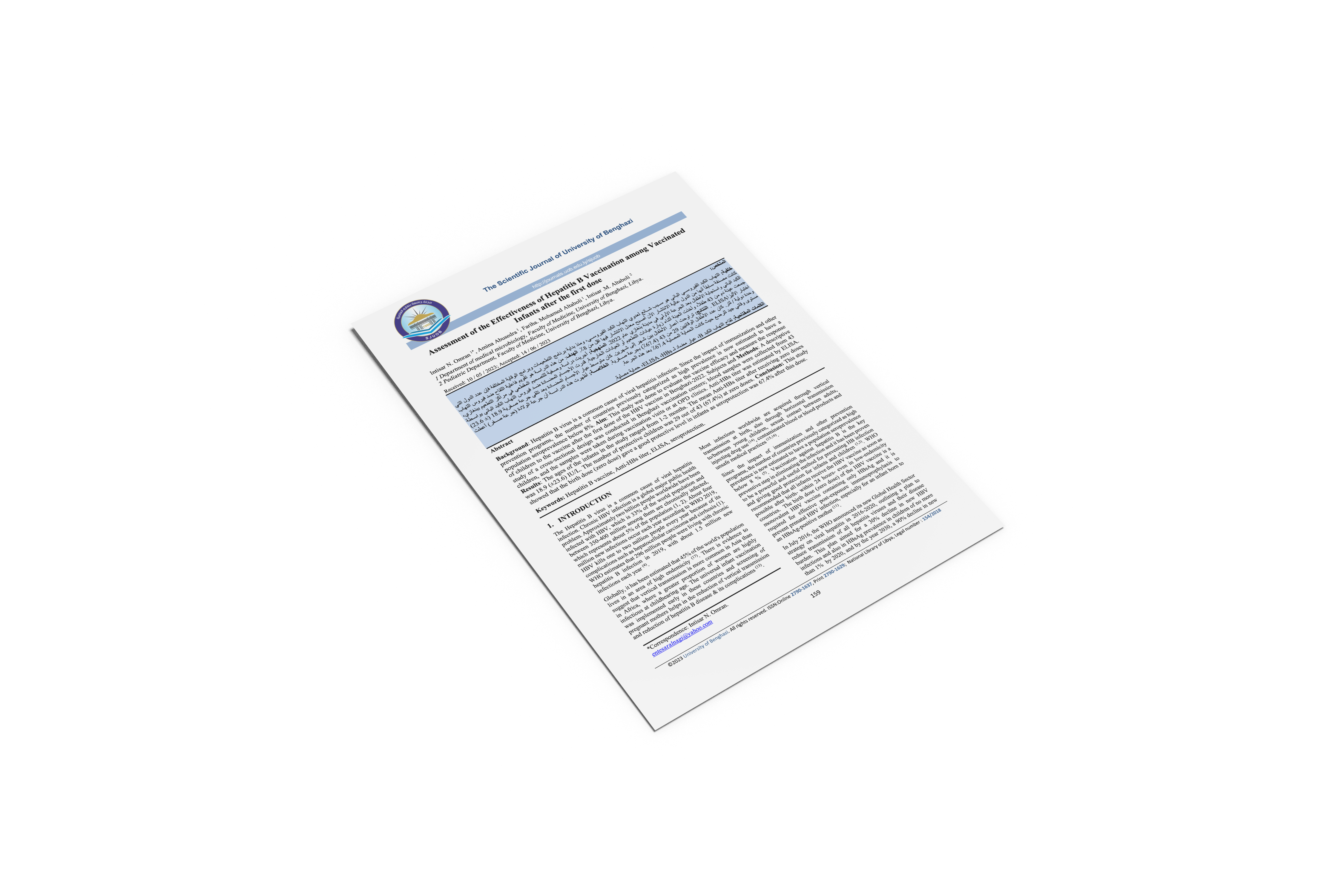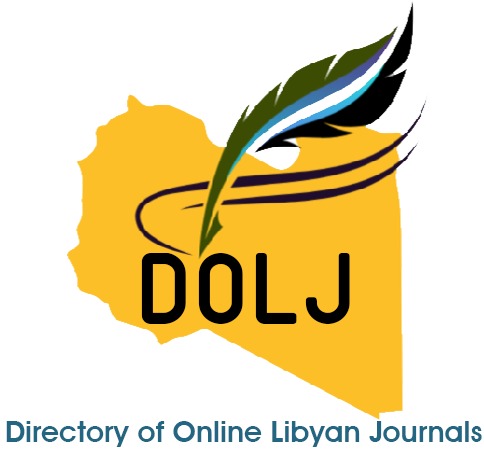Assessment of the Effectiveness of Hepatitis B Vaccination among Vaccinated Infants after the first dose
DOI:
https://doi.org/10.37376/sjuob.v36i1.3947Keywords:
Hepatitis B vaccine, Anti-HBs titer, ELISA, seroprotectionAbstract
Background: Hepatitis B virus is a common cause of viral hepatitis infection. Since the impact of immunization and other prevention programs, the number of countries previously categorized as high prevalence is now estimated to have a population seroprevalence below 8%. Aim: This study was done to evaluate the vaccine efficacy and measure the response of children to the vaccine after the first dose of the HBV vaccine in Benghazi-2022. Subjects and Methods: A descriptive study of a cross-sectional design was conducted in Benghazi vaccination centers; blood samples were collected from 43 children, and the samples were taken during vaccination visits or at OPD clinics. Anti-HBs titer was estimated by ELISA. Results: The ages of the infants in the study ranged from 1-2 months. The mean Anti-HBs titer after receiving zero doses was 18.9 (±23.6) IU/L. The number of protective children was 29 out of 43 (67.4%) at zero doses. Conclusion: This study showed that the birth dose (zero dose) gave a good protective level in infants as seroprotection was 67.4% after this dose.
Downloads

Downloads
Published
How to Cite
Issue
Section
License
Copyright (c) 2023 The Scientific Journal of University of Benghazi

This work is licensed under a Creative Commons Attribution-NonCommercial-NoDerivatives 4.0 International License.


















